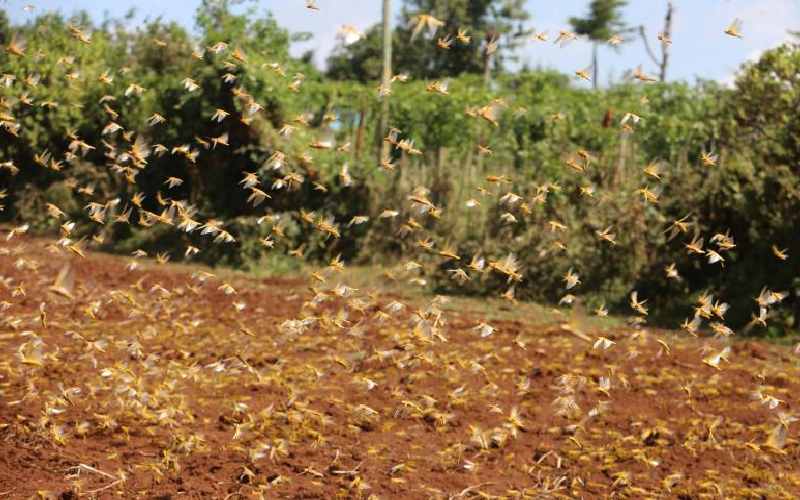×
The Standard e-Paper
Smart Minds Choose Us

The Food and Agriculture Organisation (FAO) has warned of a second wave of locust invasion in Kenya. Information on FAO’s Locust Watch website shows that a large swarm of locusts could enter Kenya through Marsabit County from Teltele in Ethiopia.